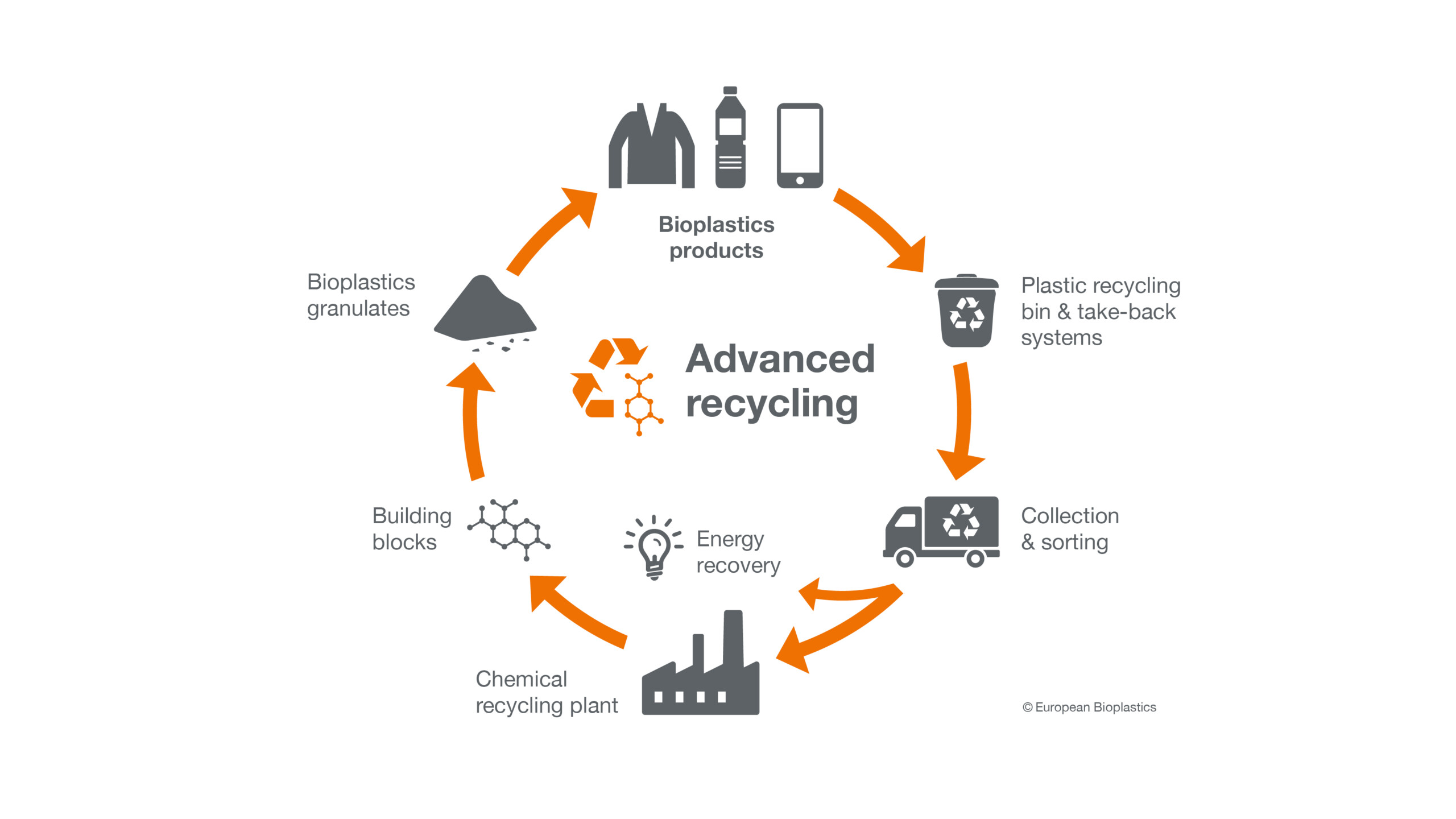Advanced recycling
Advanced recycling, often referred to as chemical recycling, includes depolymerisation, pyrolysis, gasification and others.
It is a complementary option for polymers where mechanical recycling is not technically or economically feasible today. It is an option for bioplastics to the same extent as it is for conventional plastics.

While there are several advanced technologies available, depolymerisation technologies, such as hydrolysis, recover the building blocks or monomers that a polymer is made of. These monomers can be purified and reused in existing polymerisation processes for the subsequent fabrication of products. This is also relevant to biopolymers, for example: PLA can be hydrolysed to lactic acid, rendering high yields with a low energy demand.
Advanced recycling applied to other bioplastics, such as PBAT and PBS is possible as well.
Advanced recycling of biobased plastics contributes to a circular bioeconomy by keeping biogenic carbon in the loop even longer, requiring not only fewer fossil resources, but also less renewable feedstock to produce new, high-quality biobased plastics.
Find out more in our position paper on end-of-life options for bioplastic products.
